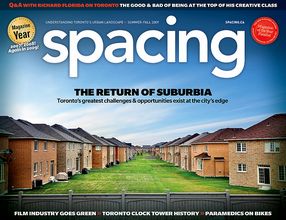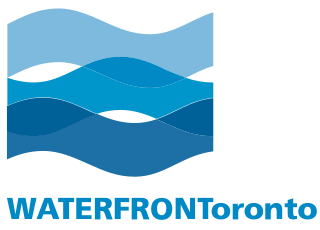Related Research Articles
Campaign finance laws in the United States have been a contentious political issue since the early days of the union. The most recent major federal law affecting campaign finance was the Bipartisan Campaign Reform Act (BCRA) of 2002, also known as "McCain-Feingold". Key provisions of the law prohibited unregulated contributions to national political parties and limited the use of corporate and union money to fund ads discussing political issues within 60 days of a general election or 30 days of a primary election; However, provisions of BCRA limiting corporate and union expenditures for issue advertising were overturned by the Supreme Court in Federal Election Commission v. Wisconsin Right to Life.

Guerrilla marketing is an advertisement strategy in which a company uses surprise and/or unconventional interactions in order to promote a product or service. It is a type of publicity. The term was popularized by Jay Conrad Levinson's 1984 book Guerrilla Marketing.

A billboard is a large outdoor advertising structure, typically found in high-traffic areas such as alongside busy roads. Billboards present large advertisements to passing pedestrians and drivers. Typically brands use billboards to build their brands or to push for their new products.

Yonge–Dundas Square, or Dundas Square, is a public square at the southeast corner of the intersection of Yonge Street and Dundas Street East in Downtown Toronto, Ontario, Canada. Designed by Brown and Storey Architects, the square was conceived in 1997 as part of revitalizing the intersection. Since its completion in 2002, the square has hosted many public events, performances and art displays, establishing itself as a prominent landmark in Toronto and one of the city's prime tourist attractions. Central to the Downtown Yonge entertainment and shopping district, the square is owned by the city and is the first public square in Canada to be maintained through a public-private partnership. The intersection is one of the busiest in Canada, with over 100,000 people crossing the city's first pedestrian scramble daily.

Guerrilla Girls is an anonymous group of feminist, female artists devoted to fighting sexism and racism within the art world. The group formed in New York City in 1985, born out of a picket against the Museum of Modern Art the previous year. The core of the group's work is bringing gender and racial inequality into focus within the greater arts community and society at large. The Guerrilla Girls employ culture jamming in the form of posters, books, billboards, lectures, interviews, public appearances and internet interventions to expose disparities, discrimination, and corruption. They also often use humor in their work to make their serious messages engaging. The Guerrilla Girls are known for their "guerrilla" tactics, hence their name, such as hanging up posters or staging surprise exhibitions. To remain anonymous, members don gorilla masks. To permit individual identities in interviews, they use pseudonyms that refer to deceased female artists such as Frida Kahlo, Käthe Kollwitz, and Alice Neel, as well as writers and activists, such as Gertrude Stein and Harriet Tubman. According to GG1, identities are concealed because issues matter more than individual identities, "Mainly, we wanted the focus to be on the issues, not on our personalities or our own work."

Keep America Beautiful is a nonprofit organization founded in 1953. It is the largest community improvement organization in the United States, with more than 700 state and community-based affiliate organizations and more than 1,000 partner organizations.

An advertising campaign is a series of advertisement messages that share a single idea and theme which make up an integrated marketing communication (IMC). An IMC is a platform in which a group of people can group their ideas, beliefs, and concepts into one large media base. Advertising campaigns utilize diverse media channels over a particular time frame and target identified audiences.
Philip Andrew Gillies is a former politician in Ontario, Canada. He served in the Legislative Assembly of Ontario from 1981 to 1987 as a Progressive Conservative, and was a cabinet minister in the government of Frank Miller.

Guerrilla gardening is the act of gardening – raising food, plants, or flowers – on land that the gardeners do not have the legal rights to cultivate, such as abandoned sites, areas that are not being cared for, or private property. It encompasses a diverse range of people and motivations, ranging from gardeners who spill over their legal boundaries to gardeners with a political purpose, who seek to provoke change by using guerrilla gardening as a form of protest or direct action. This practice has implications for land rights and land reform; aiming to promote re-consideration of land ownership in order to assign a new purpose or reclaim land that is perceived to be in neglect or misused. Some gardeners work at night, in relative secrecy, in an effort to make the area more useful or attractive, while others garden during the day for publicity.

The ArQuives: Canada's LGBTQ2+ Archives, formerly known as the Canadian Lesbian and Gay Archives, is a Canadian non-profit organization, founded in 1973 as the Canadian Gay Liberation Movement Archives. The ArQuives acquires, preserves, and provides public access to material and information by and about lesbian, gay, bisexual, transgender, queer, and two-spirit communities primarily in Canada.

Spacing is a magazine published in Toronto, Ontario, Canada. Focusing on issues affecting the public realm in Toronto and nationally, Spacing was originally published by the Toronto Public Space Committee in house until it was spun off as a wholly independent magazine after the first issue.

Urban horticulture is the science and study of the growing plants in an urban environment. It focuses on the functional use of horticulture so as to maintain and improve the surrounding urban area. Urban horticulture has seen an increase in attention with the global trend of urbanization and works to study the harvest, aesthetic, architectural, recreational and psychological purposes and effects of plants in urban environments.

Waterfront Toronto is an organization that oversees revitalization projects along the Toronto waterfront. Established in 2001 as a public–public partnership between the City of Toronto, Province of Ontario and Government of Canada, the organization is administering several blocks of land redevelopment projects surrounding Toronto Harbour and various other initiatives to promote the revitalization of the area, including public transit, housing developments, brownfield rehabilitation, possible removal of the Gardiner Expressway in the area, the Martin Goodman Trail and lakeshore improvements, and naturalization of the Don River. Actual development of the projects is done by other entities, primarily private corporations. The projects include a series of wavedeck walkways and gathering places designed by West 8 and DTAH.

Art Metropole is an artist run centre that publishes, promotes, exhibits, archives and distributes artists' publications and other materials. Art Metropole was founded in 1974 by the Canadian artist collective General Idea as a division of Art-Official, Inc.(1972), a not-for-profit corporation incorporated under the laws of the province of Ontario. Art Metropole specializes in contemporary art in multiple format: artists books, multiples, video, audio, electronic media, and offers these artists' products for sale on the premises and through their web site. It is currently located at 163 Sterling Road in Toronto, Canada.
Advertising is a form of selling a product to a certain audience in which communication is intended to persuade an audience to purchase products, ideals or services regardless of whether they want or need them. While advertising can be seen as a way to inform the audience about a certain product or idea it also comes with a cost because the sellers have to find a way to show the seller interest in their product. It is not without social costs. Unsolicited commercial email and other forms of spam have become so prevalent that they are a major nuisance to internet users, as well as being a financial burden on internet service providers. Advertising increasingly invades public spaces, such as schools, which some critics argue is a form of child exploitation. Advertising frequently uses psychological pressure on the intended consumer, which may be harmful. As a result of these criticisms, the advertising industry has seen low approval rates in surveys and negative cultural portrayals.
Street marketing is a form of guerrilla marketing that uses nontraditional or unconventional methods to promote a product or service. Many businesses use fliers, coupons, posters and art displays as a cost-effective alternative to the traditional marketing methods such as television, print and social media. Based on the shifting characteristics of modern-day consumers – such as increased product knowledge and expectations of transparency – the goal of street marketing is to use direct communication to enhance brand recognition.

World Naked Gardening Day (WNGD) is an annual international event generally celebrated on the first Saturday of May by gardeners and non-gardeners alike.
Sanjay Kaul is an Indian political activist and has been a member of the Delhi BJP Executive Committee & spokesperson for Delhi BJP.

The Toronto Botanical Garden (TBG) is located at 777 Lawrence Avenue East at Leslie Street, in Toronto, Ontario, Canada. Termed "The little garden with big ideas", the TBG is nearly four acres and features 17 themed "city-sized gardens". Located in the north-east corner of Edwards Gardens, the TBG is a non-profit horticultural and educational organization with a mission to connect people, plants and the natural world through education, inspiration and leadership.

Tactical urbanism, also commonly referred to as guerrilla urbanism, pop-up urbanism, city repair, D.I.Y. urbanism, planning-by-doing, urban acupuncture, and urban prototyping, is a low-cost, temporary change to the built environment, usually in cities, intended to improve local neighbourhoods and city gathering places.